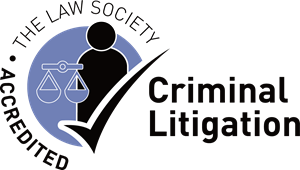The main legislation for drugs offences in the UK is the Misuse of Drugs Act 1971. New drug sentencing guidelines came into effect in April 2021.
The guidelines provide judges and magistrates in England and Wales with updated sentencing guidelines for offences under this act as well as new guidelines for offences created by the Psychoactive Substances Act 2016.
The aim of the guidelines is to bring clarity and transparency around the sentencing process for drug offences.
Why were revised guidelines necessary?
The previous guidelines were issued in 2012. The Sentencing Council, whose primary role is to issue guidelines on sentencing, undertook research and consultations before publishing its revised guidelines. This preliminary work indicated that a discrepancy existed in the sentences judges handed down.
The revised guidelines reflect the research on the association between offenders’ sex and ethnicity and sentencing for drug offences. They are also a response to the changing nature of offending, such as a rise in the exploitation of vulnerable people and new drugs on the market.
This article is designed to shed a little light on how the guidelines work, but if the guidelines are directly relevant to you, you will want to speak to a criminal lawyer as soon as possible.
How are drugs classified?
The Misuse of Drugs Act classifies drugs, or illegal substances, whether natural or man-made, into classes on a sliding scale, with Class A drugs deemed to be the most dangerous, followed by Class B drugs, then Class C drugs.
Examples of Class A drugs include:
- crack cocaine
- cocaine
- heroin
- ecstasy
- magic mushrooms
- crystal meth
- methadone
- fentanyl
- carfentanil
Examples of Class B drugs include:
- spice
- amphetamines
- cannabis
- Codeine
- ketamine
- barbiturates
- Ritalin
What are the possible sentences for drug offences?
You can get a fine or prison sentence if you:
- take drugs
- carry drugs
- make drugs
- sell, deal, or share drugs (also called ‘supplying’ them)
The penalties depend on the type of drug or substance, the amount you have, and whether you are also dealing or producing it. So, the likely sentence depends on the offence you have been charged with, but Courts must follow the guidelines.
Under the guidelines, the offence of importation, production, and supply of controlled drugs, carries the highest sentences – up to a statutory maximum of life imprisonment for class A drugs and a statutory maximum of 14 years for class B drugs, based on quantity and the role of the offender.
Supplying lesser drugs or a small amount of a class A drug to a friend for personal use will result in a much less severe sentence. The penalty for possession of class B drugs is up to five years in prison, an unlimited fine, or both.
What are aggravating and mitigating factors?
As noted, judges are obliged to follow the sentencing guidelines when deciding an appropriate sentence for a drug offence, however the particular circumstances of each case will be taken into account by the court and certain factors can help or hinder the case for someone charged with a drug offence. This is why it is always recommended to get good legal help to prepare a defence. In other words, the sentencing guidelines are the starting point, but they are exactly as the name suggests, simply guidelines.
The sentencing guidelines stipulate that judges should take into consideration certain factors when deciding a drug offence. Aggravating factors are facts that will work against the offender in a court case, while mitigating factors will benefit the offender with regard to his or her punishment.
The judge can decide to hand down a longer sentence because he or she considers that there are aggravating factors in the case. Examples might include using the home of a vulnerable person to grow or produce illegal substances, supplying young people under the age of 18 with drugs, or being the ringleader of a whole drug network. A mitigating factor will be if the person charged pleads guilty and how early they plead.
Conclusion
Drug offences are considered to be among the most serious of crimes. Sentencing guidelines provide instructions to judges about how drugs should be classified, the length of prison sentences and what factors should be taken into account when deciding a case.
This information is for general purposes only, and we recommend that you obtain professional advice relevant to your circumstances.
If you or someone you know wants more information or needs help or advice, please contact us on 020 3189 0087 or email [email protected].





